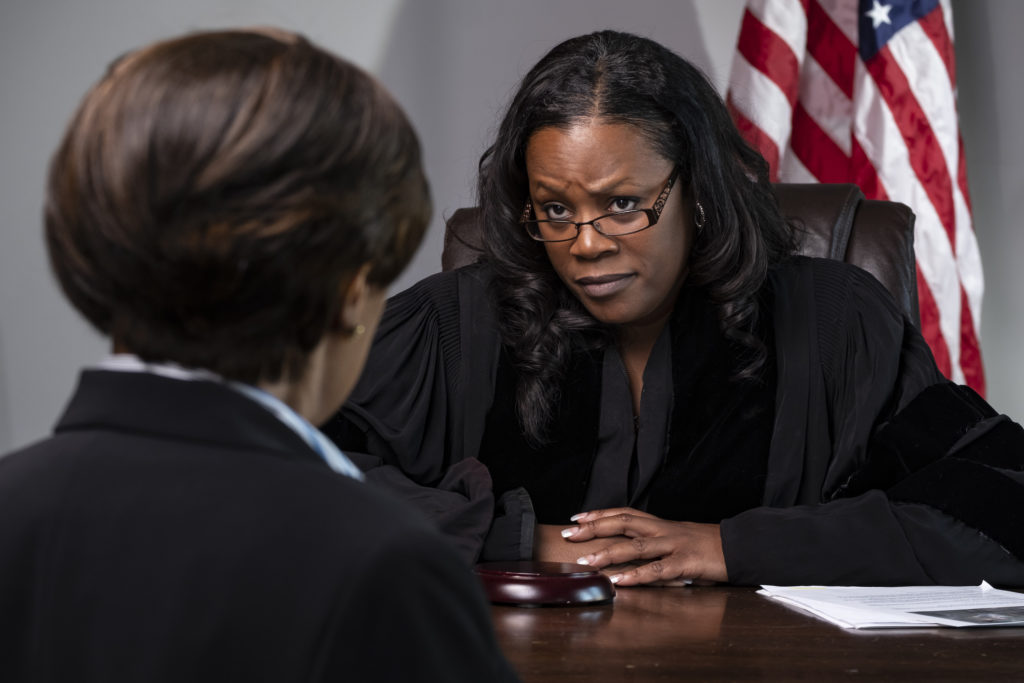A woman who was trying to save money in her divorce was shocked when she talked to a divorce lawyer. “This is crazy!” she said. “The divorce lawyer wants a $5,000 retainer fee – and that’s just the start! He won’t even tell me how much I’ll end up paying him overall. It could be tens of thousands of dollars! I can’t afford that! What’s wrong with representing yourself in family court?”
I can totally empathize. Divorce is expensive. Divorce lawyers are a big part of what makes divorce so expensive.
Plus, with so much information being available on the internet, it’s tempting to think that you don’t need a divorce lawyer to get divorced these days and that representing yourself in family court might be doable, right?
The answer, of course, is yes. You can do your divorce yourself. You don’t need a divorce lawyer to get divorced.
But, the most important question you need to ask before you consider representing yourself in family court is “SHOULD I represent myself in my divorce?”
Answering that question is infinitely harder.
Should You Represent Yourself in Your Divorce?
People want to pay a divorce lawyer to get divorced about as much as they want to pay a dentist to get a root canal done. Yet, very few people are foolish enough to believe that they can actually do their own root canal. When it comes to divorce, however, people think differently.
They think that getting divorced is just a matter of getting their spouse to sign off on some paperwork, and then presenting that paperwork to a judge. They think that they can get their paperwork done on the internet, and that it will be good enough.
At a very basic level, those people are right.
You CAN get your divorce paperwork done on the internet. And you WILL get divorced when a judge signs your paperwork.
The problem is that, just because you can get your divorce papers done on the internet, that doesn’t mean that those divorce papers will be any good. Plus, as any divorced person can tell you, there’s a whole lot more involved in getting divorced than just having the judge sign your divorce decree!
In between declaring, “I want a divorce” and presenting a judge with the RIGHT paperwork that will get you divorced properly, there is an ocean of details that you can easily drown in.
Mess up one important detail and you’ll feel like you’re on the Titanic. (Or, you’ll WISH you had been on the Titanic as you struggle to un-do the mess you made in your DIY divorce)
That being said, not everyone needs to be represented by a divorce lawyer in their divorce.
Who Needs a Divorce Lawyer?
You Need a Divorce Lawyer If:
1. You have kids.
2. You’ve been married for more than a few years.
3. You or your spouse owns a business;
4. You want to divide a retirement account.
5. Either you or your spouse has a pension.
6. Either you or your spouse has a trust.
7. You own investments or investment property (jointly or separately)
8. You both own your house and/or you both are on the mortgage.
9. You have joint debt.
10. You have assets that are worth more than $10,000/
11. You’re an emotional basket case.
12. You don’t know what your spouse owns or how much s/he makes.
13. One of you is going to pay (or should be paying) spousal support to the other; OR
14. You and your spouse don’t agree on EVERYTHING!
You DON’T Necessarily Need a Divorce Lawyer If:
1. You and your spouse don’t have any kids together;
2. You’ve only been married for a few years;
3. Neither you nor your spouse owns a business;
4. You’re not dividing any retirement accounts;
5. Neither of you has a pension;
6. Neither of you has a trust;
7. You don’t own any investments or investment property (jointly or separately);
8. You and your spouse don’t own a house;
9. You don’t have any joint debt;
10. Your assets are worth less than $10,000;
11. You and your spouse have already worked through a lot of your emotions about the divorce;
12. Neither one of you will be paying or receiving spousal support to the other;
13. You and your spouse have fully disclosed all of your financial information to each other; AND
14. You and your spouse agree on EVERYTHING!
The Dangers of Representing Yourself in Family Court
Representing yourself in your own divorce can be a risky proposition, especially if you have anything to lose. While it’s tempting to think that if you make a mistake in your divorce, you can always go back and fix it later, that’s not necessarily true.
For example, once you waive your right to get spousal support, you give up your right to get it forever. If you mess up your property settlement, you may also find that you just have to live with your bad deal. That’s especially true if it takes you a while to figure out that you made a mistake.
Why would it take time for you to figure out that your property settlement gave you a raw deal? In a word: taxes!
How you divide your property in a divorce matters. Different property settlements can have very different income tax implications. For example, if you and your spouse each got $100,000 in your divorce, but you got $100,000 in a 401(k) and your ex got $100,000 in a savings account, you didn’t each get $100,000!
Your ex got $100,000. Meanwhile you got $100,000 minus what you will have to pay in income taxes (and maybe penalties!) when you withdraw your money from your IRA or 401(k)! Unfortunately, you may not figure that out until you actually withdraw money from your retirement account. That could be years after your divorce. By then, even if you could fix your mistake, it may be far too late to do so in court.
The bottom line is that representing yourself in family court is possible. But doing so can be dangerous. It can also end up costing you way more than what you would pay a lawyer to do it right the first time.

Karen Covy is a Divorce Coach, Lawyer, Speaker and Author. She provides divorce and decision coaching to busy professionals and business owners who want to make clear, confident decisions during one of the toughest yet most sensitive times in their life. Karen also helps them navigate through the divorce process with less conflict, expense, and damage to themselves and their children.
Karen is the author of When Happily Ever After Ends: How to Survive Your Divorce Emotionally, Financially, and Legally. She is also the creator of the online divorce program, The Divorce Road Map 2.0. You can connect with Karen on Facebook, Twitter, LinkedIn and YouTube, as well as on her website at karencovy.com.




















